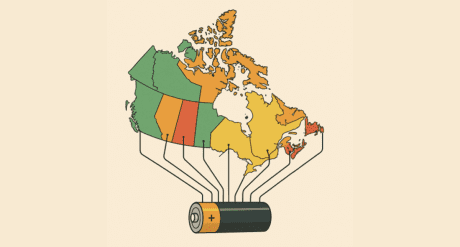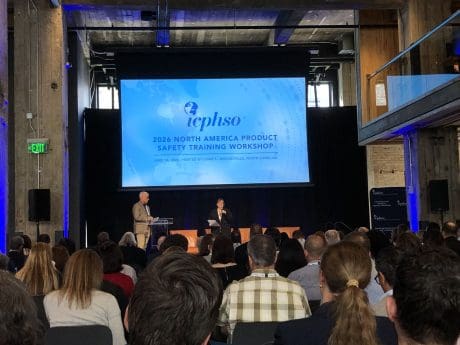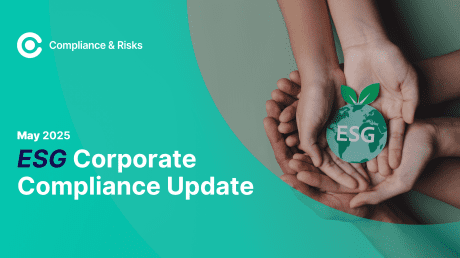
What’s Trending In Compliance? (August 2022)

At Compliance & Risks we help manufacturers, retailers and their supply chain partners to monitor and manage global regulations via C2P, our compliance knowledge management platform.
These are some of the top trending topics that generated the most interest globally in the last month.
1. Brazil: Destination and Disposal of Batteries, Cells, Light Bulbs and Other Accumulators, Bill No. 2135, 2022
On 3 August 2022, the Brazilian Chamber of Deputies proposed Bill No. 2135 on Destination and Disposal of Batteries, Cells, Light Bulbs and Others.
This Bill intends to determine that establishments which sell lamps, batteries and other types of energy accumulators, as well as establishments providing technical assistance services, and trade-in electro-electronic and telecommunications equipment, shall be obliged to maintain collection points to receive such products after their destruction or energy depletion.
In addition, these establishments will have to display signs in a visible place to alert and inform customers that they have a collection point for this waste.
According to Article 2, the following products require an appropriate destination:
- Batteries, cells and other types of energy accumulators that contain in their composition lead, mercury and their compounds;
- Lamps containing mercury and its compounds include fluorescent, sodium vapour, mixed light, dichroic halogen lamps, and other metal vapour lamps.
If accepted, the Law will enter into force 60 days after the date of its publication.
2. Saudi Arabia: Restriction on the Use of Hazardous Substances in Electrical and Electronic Equipment, Technical Regulation, July 2021
In a Decision published on 29 July 2022, SASO approved some adjustments to the national RoHS requirements.
It will be recalled that Saudi Arabia’s RoHS technical regulation has been in force since July 2021, with phased implementation commencing on 4 July 2022 for small household appliances.
A number of the changes are non-material, and will not be expected to impact current technical requirements.
Key changes include the addition of point 2 to Article 5 on conformity assessment to clarify that for factories or the manufacturer’s agent supplying products in the Kingdom, it is sufficient to issue a supplier’s declaration of conformity.
Further, the Regulation is supplemented with Annex (1-B) on applications exempted from the restrictions specific to monitoring and control instruments. While SASO appears to be closely following Annex IV exemptions of Directive 2011/65/EC, it is advisable to consult the text with regard to specific exemptions.
A consolidated text incorporating the amendments has been drafted and circulated by SASO. It may be consulted here
3. USA: Consumer Product Safety Standard for Button Cell or Coin Batteries and Products Containing Them, Public Law: 117-171, House Bill 5313, 2022
The intent of Reese’s Law is to protect children and other consumers against hazards associated with the accidental ingestion of button cell or coin batteries by requiring that the Consumer Product Safety Commission (CPSC) promulgate a consumer product safety standard that requires child-resistant closures on consumer products that use such batteries, and for other purposes.
No later than 1 year after the date of the enactment of this Act, the CPSC shall, in accordance with section 553 of title 5, United States Code, promulgate a final consumer product safety standard for button cell or coin batteries and consumer products that contain button cell or coin batteries that shall only contain:
- A performance standard requiring the button cell or coin battery compartments of a consumer product containing button cell or coin batteries to be secured in a way that would eliminate, or would adequately reduce, the risk of injury from button or coin cell battery ingestion by children that are 6 years of age or younger during conditions of reasonably foreseeable use or misuse; and
- Warning label requirements:
– To be included on the packaging of button cell or coin batteries and the packaging of a consumer product that contains button cell or coin batteries;
– To be included in any literature, such as a user manual, that accompanies a consumer product containing button cell or coin batteries; and
– To be included, as is practicable:
* Directly on a consumer product containing button cell or coin batteries in a way that is visible to the consumer upon installation or replacement of the button cell or coin battery; or
* In the case of a product for which the battery is not intended to be replaced or installed by the consumer, to be included directly on the consumer product in a way which is visible to the consumer upon access to the battery compartment, except that if it is not practicable to label the product, this information shall be placed on the packaging or instructions.
The consumer product safety standard promulgated per this Law, as well as the requirements for child-resistant packaging, shall only apply to a product that is manufactured or imported after the effective date of such standard or requirement.
4. Philippines: Ecological Solid Waste Management Act, RA 9003, 2000 – Amendment – (on extended producer responsibility schemes) Senate Bill 2425 Enacted, 2022
On 3 August Senator Cynthia Villar said Republic Act 11898 or the Extended Producer Responsibility Act, which recently lapsed into law, will only be limited to large companies.
The law requires large companies to adopt and implement policies for the proper management of plastic packaging waste.
Villar explained that micro, small and medium enterprises (MSMEs) are not ready to take another responsibility amid the economic burdens brought by the coronavirus disease 2019 (Covid-19) pandemic.
“We thought that mahirap sa kanila (it will be hard for them) to be given responsibility now, on recovery pa sila (they are still in recovery).
But the large companies are very prepared to do this kasi (because) this is a practice abroad.
When you say large companies, they are mostly international.
So, they have been doing this in other countries,” she told Senate reporters.
RA 11898, which amends the Ecological Solid Waste Management Act, was ratified by the Senate during the 18th Congress after garnering a unanimous 22-0-0 vote.
Villar, who was the chairperson of the Senate Committee on Environment, Natural Resources and Climate Change then, said the bill was crafted in response to the clamor for the regulation of single-use plastics and their production, importation and disposal by industries.
5. Germany: Management of Waste Electrical and Electronic Equipment (WEEE), Act, BGBI. 1739, 2015 – Proposed Amendment – (on extension of deadline to verify registration), Draft Law, July 2022
On 27 July 2022, the German Federal Ministry for the Environment, Nature Conservation, Nuclear Safety and Consumer Protection proposed a draft law to amend the Management of Waste Electrical and Electronic Equipment (WEEE), Act, BGBI. 1739, 2015 (ElektroG).
The proposed amendment extends the transitional period under Section 46(2) from 1 January 2023 to 1 July 2023 for the application of Section 6(2) points 2 and 3.
Sections 6(2) points 2 and 3 prohibit online sellers from offering or providing EEE and service providers from providing warehousing, packaging, addressing, or shipping of EEE from a manufacturer (or its authorised representative) unless they are properly registered.
This essentially requires these economic actors to verify the registration of the respective manufacturer or his authorised representative before facilitating offering EEE on the marketplace or providing EEE services.
As the original deadline quickly approaches, the number of applications for registration of authorised representatives has increased and created a backlog in applications in Stiftung EAR (Germany’s WEEE registration authority). The reason for this proposed extension is to allow further time for the processing of these applications which in turn will facilitate online sellers and service providers being able to comply with their requirements.
The proposed date of entry into force of this draft law is 31 December 2022.
Stay Updated On Global Regulations
This information is based on the most viewed regulations on C2P this month. If you would like to find out more about how you can stay on top of global regulations, why don’t you Book a Demo with our team today?
Book Time With Our Team
Learn how C2P can help you stay ahead of regulatory changes and achieve uninterrupted market access.








